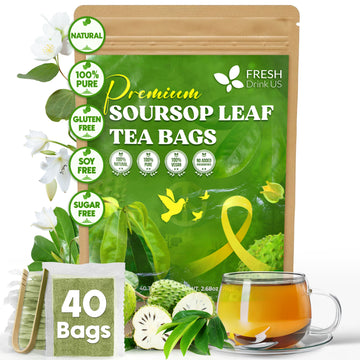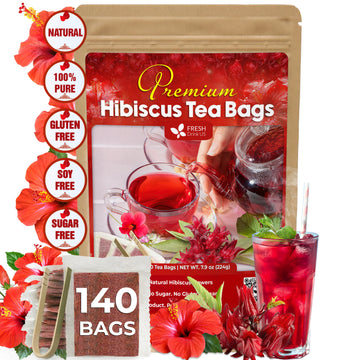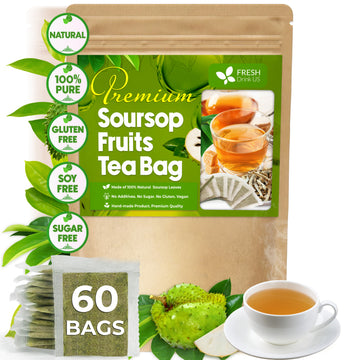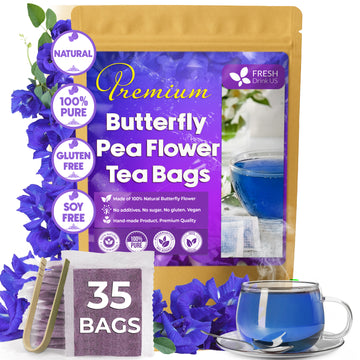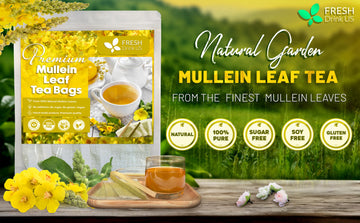- Introduction to Mullein Leaf Tea
-
Nutritional Composition
- Vitamins and Minerals
-
Health Benefits
- Respiratory Support
- Anti-inflammatory Properties
- Relief from Digestive Issues
- Pain Management
- Skin Health
- Supports Heart Health
- Research Studies
-
How to Make Mullein Leaf Tea
- Ingredients
- Preparation
- Possible Side Effects and Precautions
- Conclusion
Mullein Leaf Tea Benefits
If you’re seeking a natural remedy to enhance your health, consider indulging in mullein leaf tea. This herbal infusion, derived from the leaves of the mullein plant, is renowned for its medicinal properties and nutritional richness. From respiratory support to skin health, mullein leaf tea offers a plethora of advantages. Let’s explore why incorporating mullein leaf tea into your daily routine can be a beneficial choice for your well-being.

Nutritional Composition
Mullein leaves boast a wide array of essential nutrients that contribute to overall health. They are particularly rich in vitamins A, B2, B5, and B12, as well as minerals such as calcium, iron, and potassium. These nutrients play vital roles in supporting bodily functions and promoting vitality.
Health Benefits
Respiratory Support
One of the primary benefits of mullein leaf tea is its ability to support respiratory health. The soothing properties of mullein help alleviate symptoms of respiratory conditions such as coughs, asthma, and bronchitis. Drinking mullein leaf tea can help relieve congestion, reduce inflammation, and promote easier breathing.
Anti-inflammatory Properties
Mullein leaf tea contains compounds with powerful anti-inflammatory properties, making it effective in reducing inflammation throughout the body. Regular consumption of mullein tea may help alleviate symptoms of inflammatory conditions such as arthritis, joint pain, and muscle soreness.
Relief from Digestive Issues
Mullein leaf tea is known for its gentle laxative properties, which can help relieve constipation and promote regularity. Additionally, it can soothe gastrointestinal discomfort and inflammation, making it beneficial for individuals suffering from digestive issues like indigestion and irritable bowel syndrome (IBS).
Pain Management
The analgesic properties of mullein leaf tea make it effective in managing pain and discomfort. It can help alleviate headaches, menstrual cramps, and general aches and pains. Regular consumption of mullein tea may provide natural relief from various forms of discomfort.
Skin Health
Mullein leaf tea possesses antioxidant properties that help protect the skin from damage caused by free radicals and environmental stressors. It also has antimicrobial properties, which can help prevent and treat skin infections. Drinking mullein tea may promote clear, healthy skin and alleviate skin conditions such as acne and eczema.
Supports Heart Health
Drinking mullein leaf tea may benefit heart health by promoting healthy circulation and reducing the risk of cardiovascular disease. The antioxidant and anti-inflammatory properties of mullein help protect blood vessels and lower cholesterol levels, supporting overall cardiovascular function.
Research Studies
Several studies have investigated the health benefits of mullein leaf tea and its medicinal properties. Research suggests that mullein exhibits antimicrobial, anti-inflammatory, and analgesic effects, making it a valuable herbal remedy for various health conditions.
How to Make Mullein Leaf Tea
Ingredients
To prepare mullein leaf tea, you’ll need dried mullein leaves and water.
Preparation
1. Boil water: Bring water to a boil in a kettle or pot. You’ll need enough water to fill your mug or teapot.
2. Prepare your mug or teapot: Place one Mullein leaf tea bag into your mug or teapot.
3. Pour hot water: Once the water has reached a rolling boil, carefully pour it over the Mullein leaf tea bag in your mug or teapot. Fill the vessel to your desired level, depending on how strong you like your tea.
4. Steep the tea: Let the Mullein leaf tea bag steep in the hot water for about 5-10 minutes. The longer you steep it, the stronger the flavor will be.
5. Remove the tea bag: After the desired steeping time, carefully remove the Mullein leaf tea bag from your mug or teapot.
6. Sweeten if desired: You can add honey, sugar, or any other sweetener of your choice to enhance the flavor, if desired.
7. Enjoy your Mullein leaf tea: Stir the tea gently and enjoy it while it’s hot. Mullein leaf tea is known for its mild, slightly sweet flavor and is often enjoyed for its soothing properties.
Possible Side Effects and Precautions
While mullein leaf tea is generally safe for most people, it may cause allergic reactions in some individuals. Pregnant or breastfeeding women should consult with a healthcare professional before consuming mullein tea. Additionally, individuals with certain medical conditions or those taking medications should exercise caution and seek medical advice before incorporating mullein leaf tea into their routine.
Conclusion
Mullein leaf tea is a versatile herbal remedy with numerous health benefits. From respiratory support to pain management and skin health, mullein offers a holistic approach to wellness. By incorporating mullein leaf tea into your daily routine, you can harness the healing power of nature and promote overall health and vitality.
FAQs
-
Is mullein leaf tea safe for children?
While mullein leaf tea is generally considered safe for adults, it’s advisable to consult with a pediatrician before giving it to children, especially in large quantities.
-
Can mullein leaf tea help with earaches?
Some people use mullein oil for earaches, but there is limited scientific evidence to support its effectiveness. It’s best to consult with a healthcare professional for appropriate treatment of earaches.
-
Are there any contraindications for drinking mullein leaf tea?
Individuals with allergies to plants in the Asteraceae family, such as ragweed or marigolds, should avoid mullein leaf tea. Additionally, those with certain medical conditions or taking medications should consult with a healthcare provider before consuming mullein tea.
-
Where can I find dried mullein leaves for making tea?
Dried mullein leaves can be purchased from herbal shops, health food stores, or online retailers specializing in herbal remedies and supplements.
-
Can mullein leaf tea be consumed hot or cold?
Mullein leaf tea can be enjoyed either hot or cold, depending on personal preference. It can be served with honey or lemon for added flavor.

